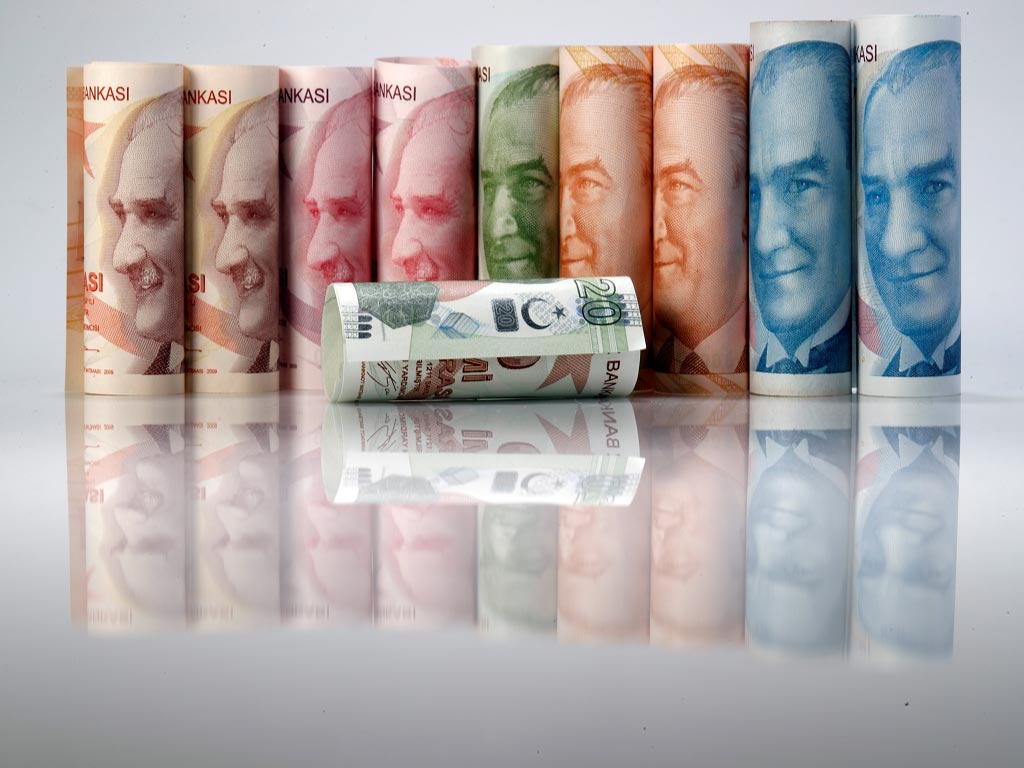Turkish lira rebounds but concern lingers after selloff

ISTANBUL/ANKARA: The Turkish lira partially recovered on Monday after last week's punishing selloff, even as investors grew alarmed that Turkey's government responded by threatening bankers and investigating their foreign exchange operations.
Last week's meltdown was the lira's worst since August when a full-blown currency crisis took hold and tipped Turkey's economy into a recession that could last deep into this year.
The selloff, which came just over a week before local elections across the country, was driven by Turks losing confidence in the lira and buying more foreign cash as the country's ties with Washington deteriorated, bankers said.
The central bank took unorthodox steps that stemmed the flow of foreign exchange and helped boost the lira to 5.57 against the U.S. dollar at 1450 GMT, more than 3 percent stronger than Friday's close. It had weakened to 5.8490 on Friday before settling at 5.7625, still its worst closing value since October.
Turkey's main stock index tumbled for a second day and, more worrying for foreign investors, there was a surge in both Turkish money market rates and the cost of insuring exposure to the country's sovereign debt.
Analysts said these financial markets were reacting sharply to the government's heavy-handed response to Friday's selloff.
President Tayyip Erdogan warned at the weekend that bankers betting on lira depreciation would pay "a very heavy price" while financial regulators opened three separate probes into JPMorgan and other banks for providing misinformation, stoking volatility and pushing clients to buy foreign currencies.
"With archaic measures of this kind he (Erdogan) will scare away even the last courageous Turkey investor," said Ulrich Leuchtmann, head of FX & EM research at Commerzbank in Frankfurt.
"Who would want to invest in a currency that's valuation is only based on fear?"
'PROTECTING THE FUTURE OF THE KIDS'
The lira's apparent fragility echoed last year's crisis in which it lost about 30 percent of its value against the dollar, leading to a spike in inflation and prompting the central bank to hike its key interest rate to 24 percent.
The Turkish government cast the 20018 crisis as an economic attack by foreign powers and encouraged Turks to buy lira to stop the weakening. At an election rally on Sunday, Erdogan said "some people" had begun provoking Turkey and were attempting to make the lira decline against foreign currencies.
But bankers told Reuters the lira's weakness was driven by individual Turkish investors souring on the weak returns they received from lira deposits, and turning to dollars and other currencies.
The foreign currency savings of local investors rose by $1.64 billion to a record high of $105.7 billion in the week to March 15 after climbing consistently for nearly six straight months, central bank data showed.
At a large private bank in central Ankara, Orhan, who declined to give his surname, said he recently converted his savings to dollars to protect his children's inheritance.
"This is not treason to the country, but it's protecting the future of our kids," he said.
"You can't put out the fire of dollars by uttering threats to the markets. Those who are ruining our economy should look at the mirror if they want to see traitors."
JPMORGAN PROBES
Turkey's main BIST 100 share index slid 0.51 percent on Monday, led by a decline in banks stocks, after tumbling on Friday to its lowest close since January. It was dragged lower in part by a global selloff in emerging market stocks over growing fears of a possible U.S. recession.
Meanwhile, Turkey's 5-year credit default swaps jumped to levels last seen in September and two of Turkey's money market rates rose over 29 percent.
Overhanging the volatility are March 31 local elections for which Erdogan has been campaigning hard for his AK Party.
The investigations into JPMorgan were around complaints that a research report it published caused speculation in the Istanbul bourse and hurt the reputation of banks, according to Turkey's banking and market regulators.
The report, obtained by Reuters, suggested clients go "long" on the dollar in advice typical of such notes.
A JPMorgan spokesman for the region declined to comment.
Governor Murat Cetinkaya was quoted on Monday as saying the central bank's main policy is to keep its reserves strong. The central bank turned to what analysts called "back door" tightening measures including not opening foreign-exchange repo or depo auctions.
The lira remains "extremely vulnerable" to shocks and investors are "a bit jittery" despite Monday's gains, said Jason Tuvey, senior emerging markets economist at Capital Economics.
"Geopolitical concerns and any comments from Erdogan regarding monetary policy, if he tries to say the central bank should reverse course, then the lira may come under pressure again," he said.
























Comments
Comments are closed.